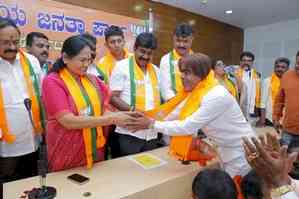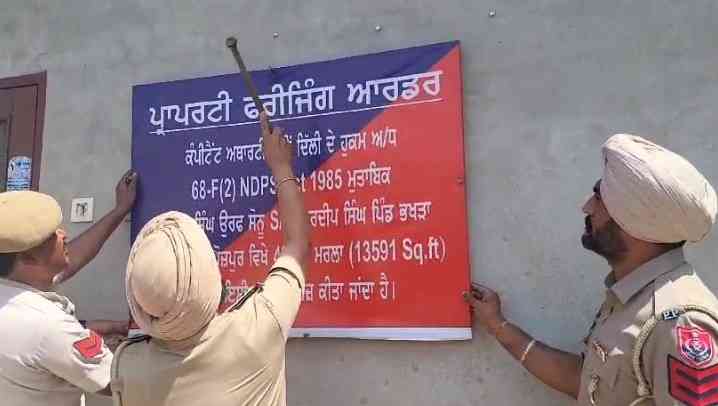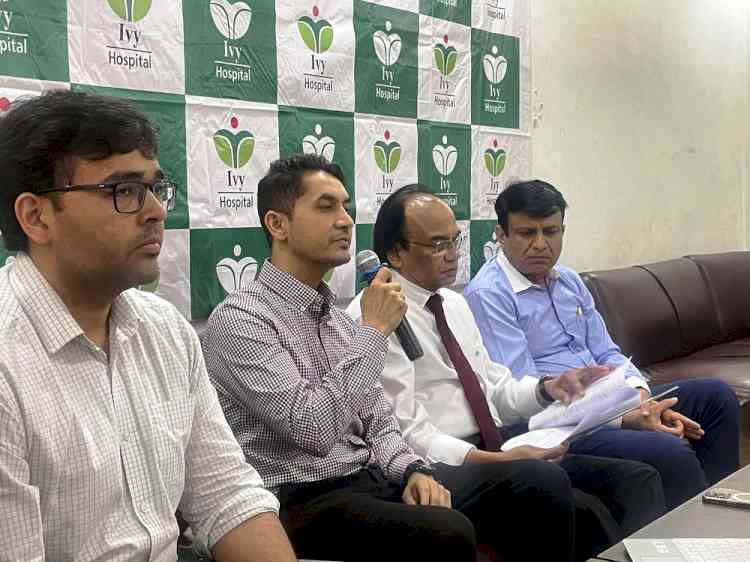Love beyond borders: Pakistani boy gets 'new life' in India
Noida, June 25 (IANS) Nine-year-old Amaar Asif was suffering from end-stage kidney and liver disease. When his parents, who own a small shop in Lahore, came to know about this rare disease, they were shattered. There is no treatment available...

Noida, June 25 (IANS) Nine-year-old Amaar Asif was suffering from end-stage kidney and liver disease. When his parents, who own a small shop in Lahore, came to know about this rare disease, they were shattered.
There is no treatment available for it in Pakistan. They consulted hospitals in Singapore, China and the US, as also in London. The cost of treatment was beyond their reach. Finally, with the help of Pakistani government, the child got a combined liver and kidney transplant at a private hospital here.
"We had lost hope. My son has got a new lease of life. I thank the doctors in India. They are so helpful and compassionate," Amaar's mother Unaiza Haider IANS.
She got emotional and said the warmth and support that she got in India is diametrically opposite to the general perception about the relations between the two countries.
"Whenever I ask about the condition of Amaar, the doctor's reply was that Amaar is like my son, we will do our best," said the mother.
A battery of 10 surgeons, 6 anaesthetists and 30 nurses conducted the combined transplant at the Fortis Hospital here.
"It was a rare and complicated case. It took us more than 10 hours to do the simultaneous transplant of kidney and liver," said Dushayant Nadar, senior consultant, urology, at Fortis Noida.
Nadar along with Vivek Vij, director of gastrointestinal surgery and liver transplant, led the surgery.
Vij explained that child was suffering from primary hyperoxaluria (excessive urinary excretion of oxalate) and had to undergo a cleansing process (haemodialysis and peritoneal dialysis) prior to the operation to reduce the oxalate levels in the blood.
Primary hyperoxaluria is a rare condition characterised by the overproduction of a substance called oxalate (also called oxalic acid). In the kidneys, the excess oxalate combines with calcium to form calcium oxalate, a hard compound that is the main component of kidney stones. Deposits of calcium oxalate can lead to kidney damage, kidney failure, and injury to other organs.
"Only one in five lakh people are affected by primary hyperoxaluria. This is indeed one of the most challenging cases in transplants as it requires extensive dialysis pre-operatively and then post-operatively," Vij said.
"In such an operation, the patient and the two donors are operated in tandem and this needs precision and absolute coordination with no scope for human error," he said.
When asked why they choose India for the surgery, Amaar's maternal grandfather Mubarak Haider said they took the decision after doing extensive inquiry and survey of the facilities in different parts of the world.
"We also tried hospitals in Singapore, China, America and some other countries. China we don't trust. Singapore, US was too expensive. We opted for India, because it is much cheaper and quality is good," Haider told IANS.
A liver transplant at Fortis Hospital cost around Rs.19 lakh, while for a kidney transplant the fee is Rs.3.5 lakh.
The Pakistani government, through its high commission here, sponsored Aamir's treatment.
Fortis Hospital's zonal director for Uttar Pradesh Somesh Mittal said the fee in Indian hospitals for kidney and liver transplants is almost one-tenth of the US.
"Our service is among the best in the world," claimed Mittal.
Mittal said a large number of patients from the neighbouring countries including Pakistan, Bangladesh and Sri Lanka visit India for transplants and other advanced medical treatment and surgeries.
Haider said such cases play a very important role in removing distrust and strengthening people-to-people contacts.
(Gyanendra Kumar Keshri can be contacted at [email protected])

 cityairnews
cityairnews 















